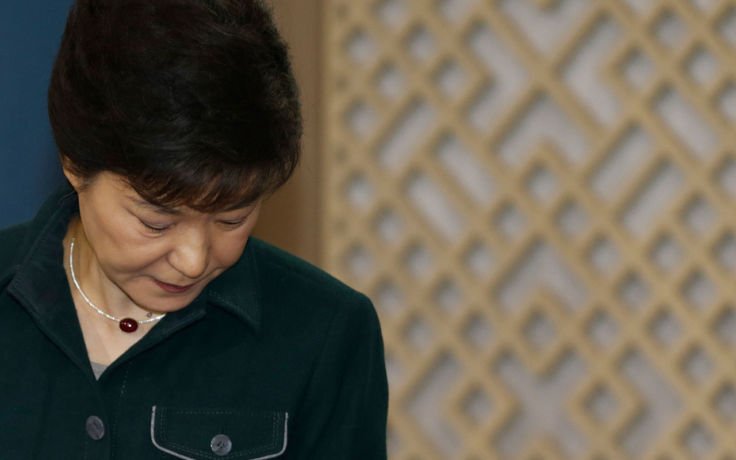
Seoul, South Korea | AFP |
When South Korea’s Park Geun-Hye looks back on the scandal-fuelled implosion of her presidency, she may reflect ruefully on what lit the first fuse — a parent pulling strings over a child’s education.
Park’s downfall was the result of her friendship with Choi Soon-Sil — a secretive, long-time confidante who stands accused of meddling in state affairs, squeezing tens of millions of dollars from local companies and amassing a fortune by leveraging her ties to the president.
It’s a damning list of charges, but one that may never have come to light but for a fatal misstep by Choi two years ago in using her influence to secure her daughter’s admission to an elite university.
This was the first loose thread pulled at by investigators probing Choi, and one that swiftly unravelled the entire scandal that now looks set to cost Park her presidency.
According to a formal audit, Choi’s daughter, Chung Yoo-Ra, was given preferential treatment when applying to Ewha Womans’ University in 2014 and was admitted at the expense of other candidates with better qualifications.
As a student, she was given a perfect attendance record despite cutting some classes, and her high grades did not reflect her actual academic performance.
In the light of the far more dramatic revelations that followed, Choi’s string-pulling on her daughter’s behalf might seem like a relatively minor infraction.
Sacred education
But while South Koreans have become resigned to a certain degree of corruption and influence-peddling, there are a few sacred cows that even the most powerful mess with at their peril — and education tops the list.
A rigorously meritocratic education system lies at the heart of South Korea’s stellar rise from the ashes of the 1950-53 Korean War to Asia’s fourth-largest economy.
The system is highly competitive and can take a distressing toll on young students who devote their teenage years to studying for the national college entrance exam.
Admission to one of a handful of elite universities — such as Ewha — is seen as vital to a student’s future prosperity, social standing and even marriage prospects.
But however cut-throat it might be, there is steadfast public faith and trust in the exam’s fairness, with every applicant sitting the same paper on the same day, and a formalised marking system.
That faith is summed up in a term popular for decades, “a dragon from a ditch” — a person of modest means who rose to success through education and hard work.
Model ‘dragons’
Model “dragons” include former president Lee Myung-Bak, who worked as a garbageman to earn college tuition, and his predecessor Roh Moo-Hyun — a poor farmer’s son who self-studied to pass a bar exam.
“The long-held belief that even those who are poor and from a humble background can rise up the social ladder through education has been a major strength of our society,” the daily Dong-A Ilbo said in a recent editorial.
“But Chung and Choi shattered this faith and hope spectacularly,” it said.
Park’s presidency has coincided with growing disquiet over a widening disparity in incomes and opportunities — an inequality now embodied in the public mind by Choi and her daughter.
In a now-infamous Facebook posting in 2014, Chung flaunted her privilege, saying: “Money is part of your talent. If you don’t have talent, blame your parents.”
The depth of anger over Chung’s admission to Ewha has been illustrated by the large number of high-school students who have taken part in weekly mass demonstrations that have seen millions march through the streets of Seoul and other cities.
“I was so angry about Chung and couldn’t even sleep when I first heard about her scandal,” said Jenny Park, a 16-year-old high school student.
“What’s the point of studying night and day when the rich and powerful can rig the whole system so easily?” she said, waving a banner reading “We didn’t study hard for this.”
Prosecutors have accused Park Geun-Hye of colluding with Choi, and the president’s approval rating among students — and pretty much the entire under-40 demographic — is currently close to zero.
Challenged youth
In many ways, young South Koreans face bigger challenges than their parents’ generation who enjoyed ample and relatively equal opportunities during the rapid growth that peaked in the 1970s and 80s.
As the economy slowed and firms hit by a global downturn stopped hiring, the jobless rate has increased, reaching a record high in February of 12.5 percent for those under 30.
The top 10 percent of earners account for nearly a half of overall income — the highest ratio in Asia — according to a study by the International Monetary Fund published this year.
Instead of “dragons from a ditch” people now talk of “dirt spoons” for those stuck in low-paid jobs with bleak prospects and “gold spoons” for those born to rich and well-connected families.
“Given how this scandal unfolded, how can I can tell my 15-year-old daughter: ‘study hard, then you can be successful?'” office worker Kim Hwa-Young, 45, said at a recent anti-Park rally.
“I can’t let my daughter live in a country like this… and tens of thousands of parents gathered here must feel the same,” Kim said.
 The Independent Uganda: You get the Truth we Pay the Price
The Independent Uganda: You get the Truth we Pay the Price



